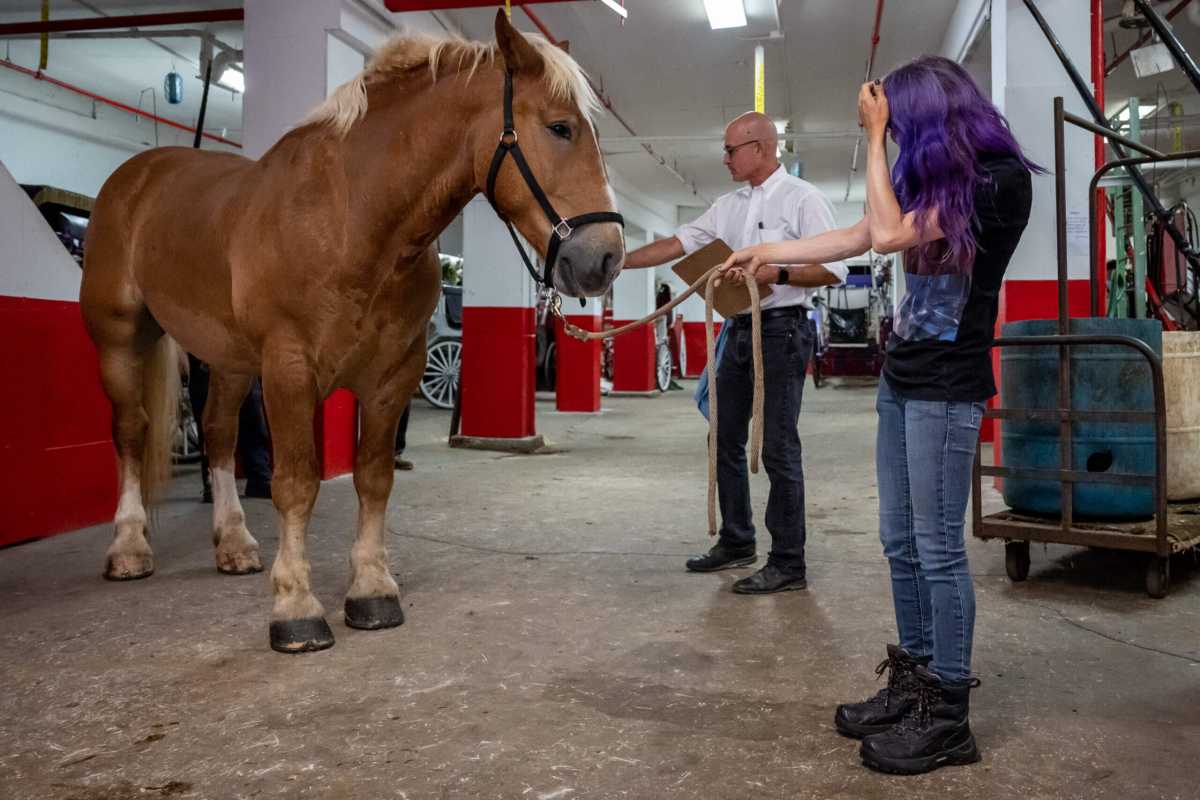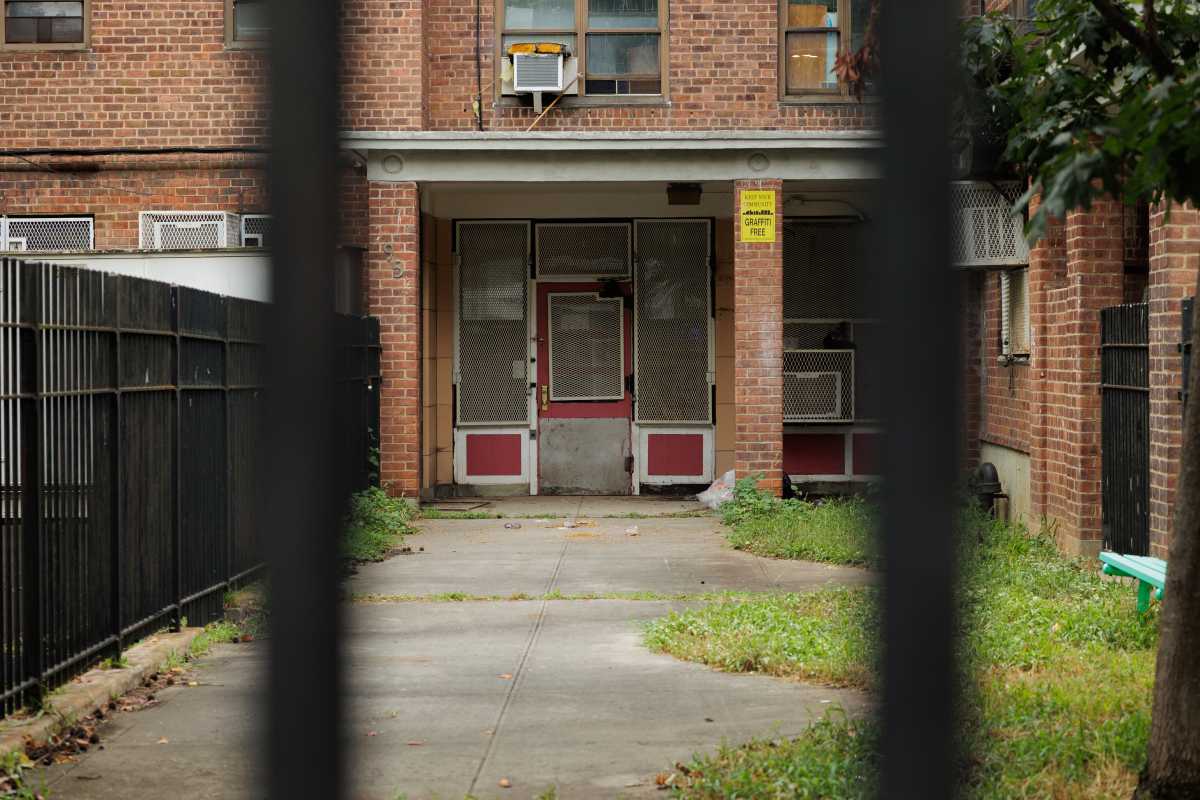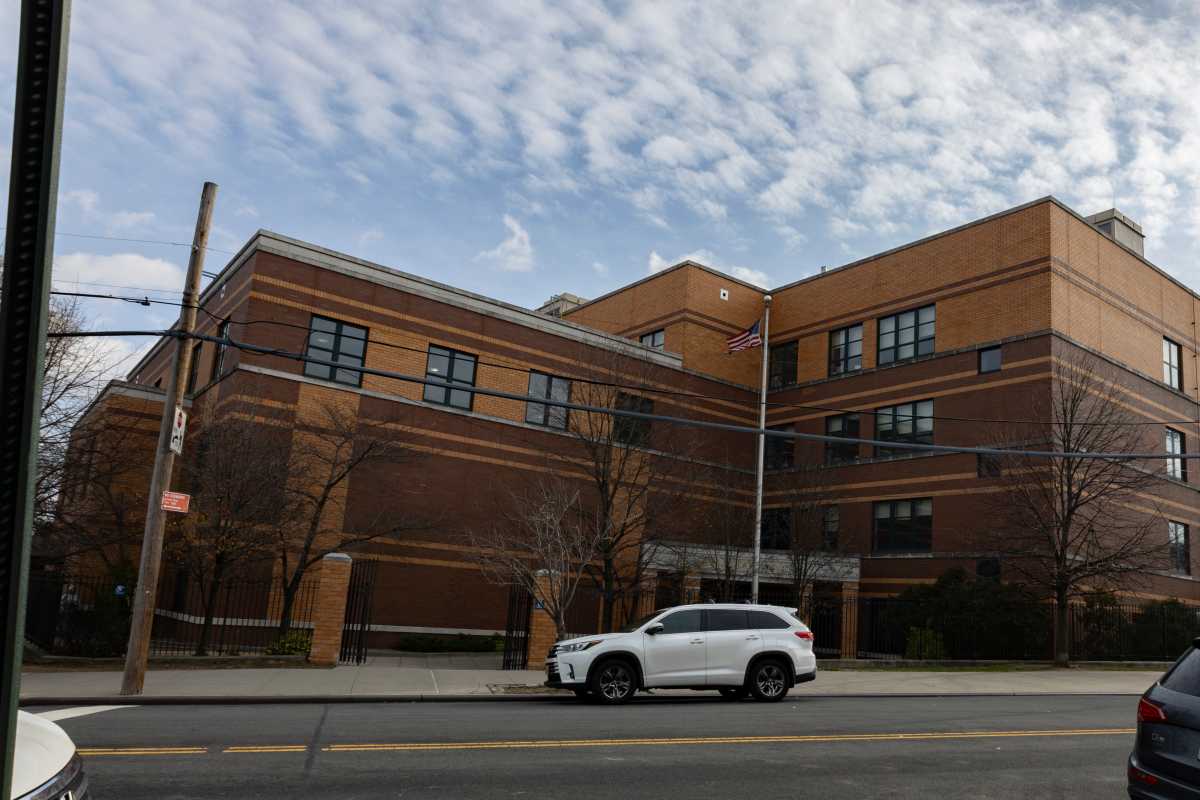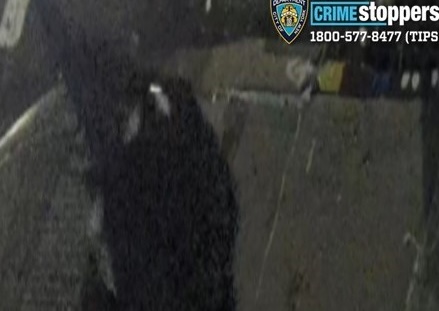NYC horse-carriage drivers are retaliating against Mayor Eric Adams’ new executive order, announced on Sept. 17, which creates a pathway toward ending the controversial industry in NYC.
The Transport Workers Union of America (TWU) and Local 100, which represents the drivers, kicked off an ad campaign on Friday blasting Adams’ for what members call his “betrayal of the Central Park horse-carriage” by initiating the order and supporting Ryder’s Law, a bill that would be the beginning of the end of the historic industry in the iconic park.
The campaign will include newspaper, radio, TV and social media spots aimed at defending the industry’s workers against the bill. The campaign began with two full-page ads that ran in local newspapers on Sept. 19.
One ad features a large photo of Adams holding money, with a message that calls him a “corrupt politician” and a “backstabber.”
The campaign will cost nearly $1 million. The union plans to continue the blitz through November.
TWU International President John Samuelsen said the mayor is pushing the industry out of the city in order to make room for more profitable real estate options where the main carriage horse stable is located on West 52nd Street.
“What’s going on here is that Eric Adams has thrown his lot in with Manhattan real estate developers,” Samuelsen said. “They want to vacate the stables so they can put up skyscrapers, condominium towers, and office towers. And they need to get rid of 170 carriage drivers to do it. So Eric Adams is now Mayor Backstabber.”
In addition to issuing Executive Order 56 on Sept. 17, which directs agencies to prepare for the industry’s end, the mayor also urged the NYC Council to pass Ryder’s Law, which would ban horse carriage rides by June 1, 2026, while directing the city to create a workforce program to help drivers get new jobs.
“Eric Adams is betraying 170 blue-collar TWU horse carriage drivers who operate in and around Central Park,” Samuelsen said. “He’s betraying commitments he’s made to me personally, to the TWU Local 100 personally.”
Union says horses are ‘humanely treated’
Not to be overlooked is the animal welfare concern at the center of the issue, which has intensified after a series of high-profile incidents involving carriage horses have taken center stage in recent years.
In 2022, carriage horse Ryder collapsed in Hell’s Kitchen during a heatwave, sparking outrage from animal advocates. Ryder recovered from the collapse but later died of cancer that October. The majestic animal prompted his namesake bill, sponsored by NYC Council Member Robert Holden of Queens.
More recently, carriage horse Lady collapsed and died from an aortic rupture near Times Square, raising further concerns from animal advocates about the safety and humane treatment of the animals.
Samuelsen of the TWU, along with others from the union, vehemently deny that the animals are mistreated, and singled out Adams for “perpetuating a lie” through his executive order.
“And worse, he’s perpetrated (sic) a lie that the horses are mistreated,” the union head said. “The horses are not mistreated. They are being very humanely treated.”
Dr. Gabriel Cook, an equine surgeon who provides veterinary care to the carriage horses, said it is “untrue” that the carriage horses should not work.
“They have been working essentially for over 5,000 years and in the Americas since the 1,500s. They have helped form our civilization,” he said. “The issue for me is not whether horses should work. They should. However, we must provide consistent medical care and regulations to ensure the health, well-being, and safety of our equine friends.”
Cook cares for the horses by visiting the stable, performing physical exams, and acts as “the gatekeeper,” he said, to ensure the animals are healthy and sound.
“I will not endorse or allow any horse to work if they have any medical issues at all,” he said.
Ending the NYC horse-carriage industry
A spokesperson for Adams said the mayor stands with the “overwhelming majority of New Yorkers” who support a ban on the carriages, and not with other “obscene and baseless claims” from the union.
“This misinformation being pushed doesn’t change the facts: these carriages are dangerous for everyday New Yorkers,” the spokesperson said. “What’s especially disappointing is that this claim ignores our commitment to supporting carriage drivers through the transition, including identifying new employment opportunities. The safety and health risks, to both the public and the horses, are well-documented and cannot be ignored. That’s why we’re moving forward with real solutions, not distractions.”
Meanwhile, two of Adams’ opponents in the 2025 NYC mayoral election applauded Hizzoner’s executive order.
“Today, for once, I agree with the mayor,” Republican and Independent mayoral candidate Curtis Sliwa said on Thursday. “I have long supported Council Member Robert Holden’s Ryder’s Law because it is past time to end the cruel and barbaric horse-carriage industry and move to humane alternatives. My wife Nancy and I stand ready to help in any way possible to get this finally done. City Council should bring Ryder’s Law to a vote immediately.”
Independent candidate Andrew Cuomo said last week he and his opponents agree on the NYC horse carriage industry.
“As mayor, I would seek a full ban on horse-drawn carriages in this city,” he said. “My opponents and I all have different visions for the future of New York City, but this is one issue where we are all in agreement: Let’s free the horses.”







































